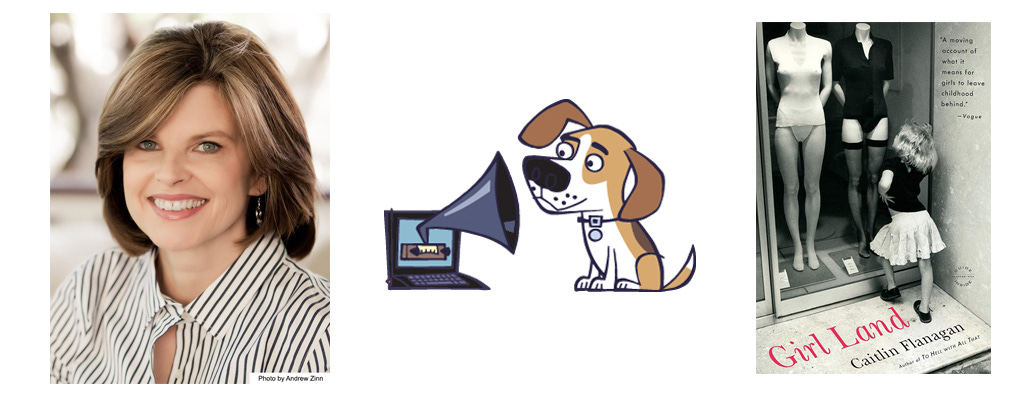Transcript: Caitlin Flanagan On Cancer, Abortion, Other Christmas Cheer
We share a Catholic faith and close encounters with death.
Caitlin is a longtime writer at The Atlantic and the author of several books — the most recent is “Girl Land” — and she’s been a frequent guest-host on the Femsplainers podcast. I’ve long been a super-fan. To see why, here are two essays Caitlin wrote — one on the dark lessons of Rudolph The Red-Nosed Reindeer, and another on the abortion debate.
We share a Catholic faith and encounters with mortality, but Caitlin’s brushes with near-death have been far more acute than my own. Her extraordinary poise and deep humanity are on full display in our chat. I’m so grateful for her time.
The episode aired on Christmas Day 2020, and you can listen to it here. A few money quotes from Caitlin:
“Cancer has nothing to do with how good you are, or how you led your life, or your attitude.”
“I agree with you completely about wokeness as a religion, and what it lacks is the most important thing of Christianity: that you can be forgiven.”
“Where is the country — other than America — that could go through this much profound shift in demographics and have a system that says, no problem — if you’re a citizen, you are here. You are equal.”
Andrew: Welcome to another edition of The Dishcast. I am super psyched to welcome Caitlin Flanagan, a great writer from The Atlantic for many years, and previously briefly for The New Yorker. This year I think has been one of her vintage years for commentary writing, I have to say. The abortion essay was pretty staggering to me and beautifully done.
Caitlin: Did you read that? Thank you.
Andrew: Of course. It's a question I've wrestled with in my own conscience for long time, even though, as a gay man, I am the least likely to have any actual real interaction with the topic.
Caitlin: Except for the fact of your own humanity.
Andrew: Yes.
Caitlin: So you have absolute — the idea that it should be left only to those who might have actual need of it, that's not right in either way. They might not have enough political power to do it if someone thinks it's the right thing. And they might not be able to see the full morality of it if someone thinks it's the wrong thing. So I think we're all in it together on this issue.
Andrew: Thank you. Women obviously have a very specific and much more intimate relationship with the topic, but men are born too. And without men there would be no abortions. I just remember — this is a completely random observation, and you'll probably appreciate it. I won't even give you any reason how this happened, but I was once on a Sunday at Hyannis Port with the Kennedys, a long time ago —
Caitlin: As one is.
Andrew: As one occasionally is. It's a weird story. And I realized it was Sunday and I needed to go to Mass. There, of course, how am I going to do that? Then my buddy Max said to me, “Well, you know, grandma has a Mass said for herself, a couple of houses down in the compound. You should try that out.” So, I was like, wow, I'm going to have Mass with Rose Kennedy. And sure enough, I showed up, it was me, a priest, Rose Kennedy in a wheelchair with her tongue hanging out. And this fiery Irish priest who decided that, not only would he give us Mass, which was all I really wanted, he would also give us a homily on the evils of abortion and I'm —
Caitlin: [laughs] To ancient Rose Kennedy and gay Andrew Sullivan!
Andrew: And a nun who was her nurse.
Caitlin: And a nun!
Andrew: Wrong crowd. But, anyway, leaving that aside.
Caitlin: I'm briefly going to blow your cover because you're one of these generous people who tell stories like that as though it doesn't happen to you a lot. And things like that do happen to you a lot.
Andrew: No. Well ...
Caitlin: You're generous to tell it that way, but it's an excellent story, which I will now be telling.
Andrew: I was just in grad school. I was a young guy and Max and I became good friends. You know, even Kennedys have human rights and they're humans. Maybe this is just my Catholicism, but my mother always told me, don't assume these wealthy, fabulous people are happy. They could be miserable.
Caitlin: Right.
Andrew: You never know the stories behind any person you meet, and what looks like privilege may not be privilege at all. And what looks like terrible adversity may be actually overcome by human being's ability to grapple with it, and to thrive with it, and to feel connected to others in it.
Caitlin: How many times do we teach that right lesson to ourselves? And it keeps slipping out of our grasp? My sister — I just think this is a great story. No Kennedys are in it, but my sister is like a Kennedy to me!
Keep reading with a 7-day free trial
Subscribe to The Weekly Dish to keep reading this post and get 7 days of free access to the full post archives.


